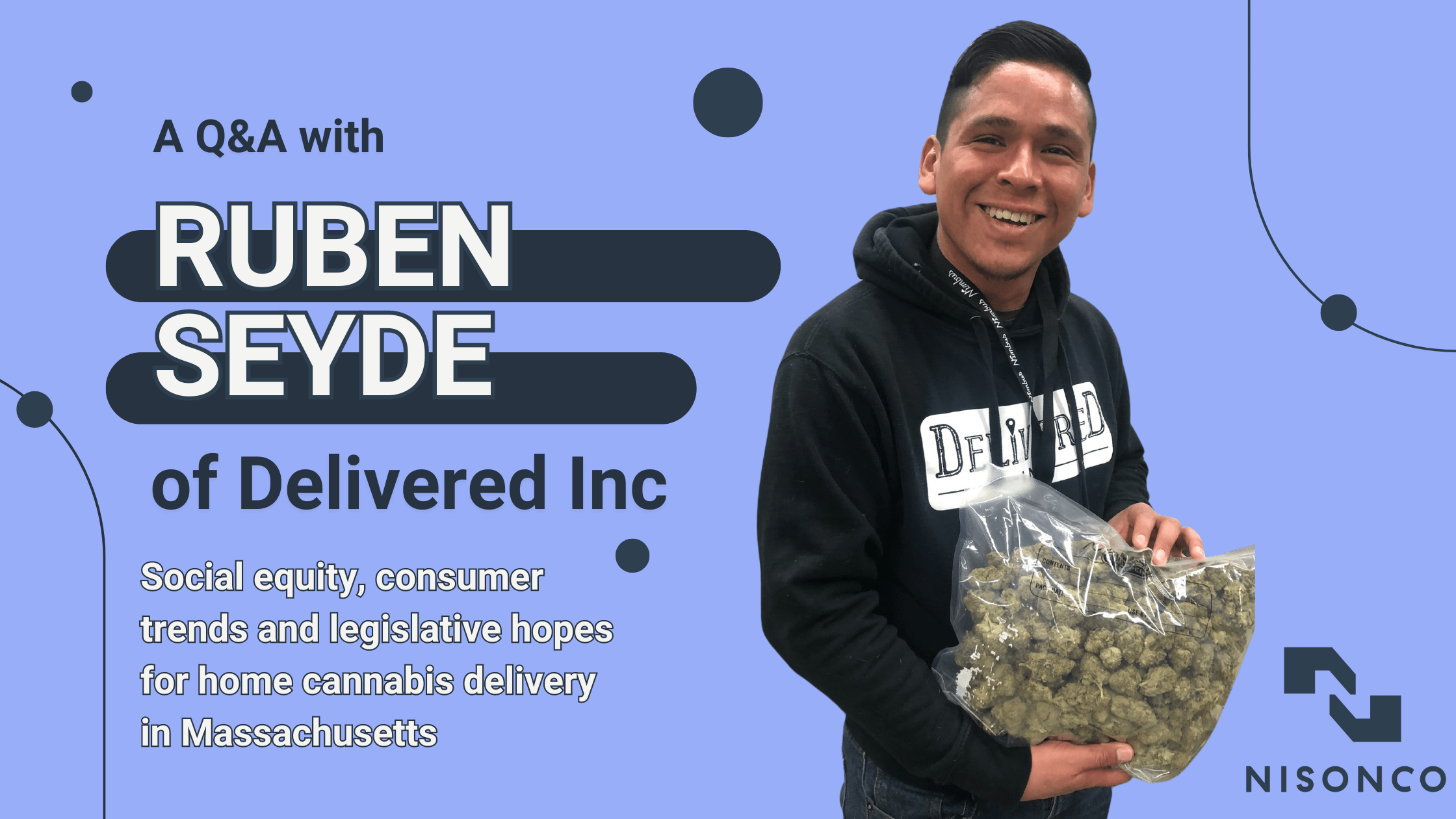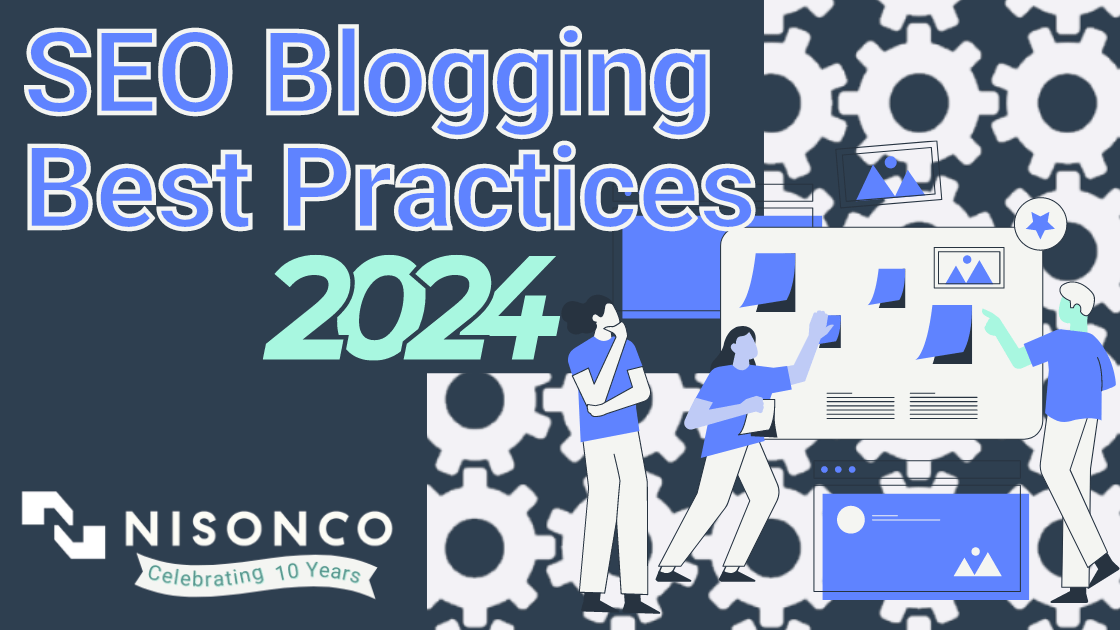Ruben Seyde, Founder and CEO of Delivered Inc, is committed to revolutionizing cannabis delivery and forwarding social equity in the industry. In June 2024, at the Flower Expo in Greenfield, Massachusetts, Seyde shared his journey and insights in an interview with NisonCo Content Director Marissa Black-Smith.
In the following interview, Seyde, who has a rich background in both the legal and legacy cannabis markets, discusses the challenges and triumphs of securing a license in Massachusetts. He shares expertise on consumer trends, regulatory hurdles, and upcoming legislative changes. Read on for the full interview.
Marissa Black-Smith: Tell me about Delivered Inc. How did y’all come into your license? What’s the process been like in Mass?
Ruben Seyde: Yeah, it was a three-year-long process of going through many hurdles and obstacles that I had no idea ever existed. But it was pretty cool to learn about how government and regulations work, why they’re there, and all of that. It was a really big crash course.
I was selling weed since I was 13 and smoking weed and just doing all of that stuff. I used to attend events like this with all black market vendors. We would rent out the same exact location, but every table was just openly selling weed. So, that was when I began to dabble in the legal market.
From there, I realized I qualified for Massachusetts’s social equity program. I figured, why not use my experience in cannabis? I’ve always wanted to get into business; I just never knew how.
So I figured, why not use that to try to get into business and try to do something? I applied, got in, and thought it would be like a quick million-dollar exit or something like that [laughs], but it became a journey. We did a cultivation project that didn’t work out, pivoted to cannabis home delivery, and now we actually managed to stick through with this project. Over three years, I went from just myself to having a team of investors and partners who believe in the vision and the cause and we’re working every day to make this a successful reality.
What areas do you deliver to, and are you just doing home delivery?
Ruben: Just home delivery for now. We do have a line of products that’s white-labeled on our behalf by some of the best cultivators and manufacturers in the state. We focus our cannabis home delivery services within the central Massachusetts market. Specifically, we deliver to Clinton, Berlin, West Boylston, Leominster, Fitchburg, Shrewsbury, Marlborough, Worcester, Harvard, Hudson, Bolton, Lunenburg, Grafton, Paxton, Rutland, Ayer, Devens, Princeton, Shirley, Uxbridge, Douglas, Mendon, Westminster, Groton, Hopedale, Northbridge, Oxford, Millbury and Framingham.
Are you seeing specific consumer trends or preferences evolve toward any specific categories?
Ruben: Flower has always been a bestseller, but edibles are emerging as a new trend. Specifically, rationed edibles, such as where you have the 1:1:1 CBN, CBD and THC. We have a lot of edibles that are 20:1. So 20mg CBD to 1mg THC, and even that’s doing really well for us. It’s fascinating to see how consumers are going from just using weed to get high to actually using it to treat medicinal conditions and look for specific effects that they didn’t know they could get. The reality is a LOT of people use cannabis to treat their conditions and as the market evolves, consumers are becoming more aware of how to better use cannabis to treat these conditions.
I hear there might be an upcoming legislative change in the delivery market, switching over from two drivers to one. Are you for it? Do you not think it’s as safe? What do you think?
Ruben: I’m 100% percent for it. Not only is it safe, it will help our business significantly. We’ll be able to double our cannabis delivery zone and expand into Boston, a more lucrative market we can’t service right now.
Marissa: And for you, that number going down doesn’t mean anybody loses their job; it just means that you get to cover more ground.
Ruben: Exactly. We already have the assets in place to use the entire team in a bigger capacity. It’s just the regulations that are limiting how fast we can grow into that. In terms of safety, I am not at all concerned. We’ve never had any safety issues. Never have we felt in danger or been robbed or anything like that. In fact, people do whatever they can to accommodate us and help us feel safe. So it’s been a good experience so far.
Marissa: Yeah, I always think that one’s a funny argument because, as a small female, the idea of two strangers showing up at my house makes me feel way less safe than just one person. So, from the opposite perspective, I’ve always thought it was a funny rule [laughs].
Ruben: [laughs] I totally feel that. Yeah, it’s like, what is the point of this? Like, we don’t need this; the body camera still didn’t help [make people comfortable]. People are trying to buy weed, which in and of itself is sometimes uncomfortable. You could feel awkward doing that, and then you introduce the element of having it on camera. It’s just not an ideal method to do these things.
You mentioned an initial cultivation business that didn’t pan out, but I’m guessing there’s still some cultivation happening, and then y’all are providing white-label services for that?
Ruben: The other way around. We have cultivators who grow their own product and white-label it for us.
Do you have your own proprietary strain?
Ruben: Yes! We dropped a Delivered-exclusive strain just in time for the summer, we call it Sour Smurf. Right now we only offer it in a two-pack of 0.5g joints. We’ll be expanding that strain in the future. We also have a collaboration with another social equity company, Major Bloom. With them, we have a two-pack of 1g Kush Mintz pre-rolls. Finally, we’ll be restocking our 2g line of All-in-One vapes in the next month or so.
Marissa: Love the Sour Smurf name; very cute!
Ruben: Yeah, we’re excited about having our own branded products in the Massachusetts cannabis market.
Marissa: And then you can carry it yourself, too.
Ruben: Exactly, yeah, that’s exactly it. We’re trying to expand and get other partners to carry it, but I think it’s just us right now.
Are you finding success with specific seasonal packages? Do you put together bundles like that or run specials?
Ruben: We do, yeah, specifically for holidays. For the Super Bowl, we had a big Super Bowl party bundle full of pre-rolls, edibles, and pre-ground flower. It moved really well because people appreciated that they didn’t have to do all the shopping; it was just one click, and they had everything that they needed.
We’re a bit limited there, though, because of how strict the cannabis commission is with their advertising requirements. We’re not even allowed to do a 30% off sale on our website, for example. We can’t do any of that. So bundles, while compliant, are also in the gray area. So we are very cautious there. We’re a small business. We really can’t afford to have the commission breathing down our neck — we already had them doing that one time. We got creative and put out lawn signs around town saying, “Get cannabis delivered.” And next thing you know, an investigator is calling us saying, “Hey, tell me more about these lawn signs and show me proof that you’re making sure that only people 21+ are viewing them, or at least 85% of the audience is 21+.”
Marissa: Well, if billboards are legal, then lawn signs should be legal because, ultimately, it’s likely the same proportion of people 21+ who are probably driving on the highway are driving on local roads.
Ruben: Exactly!! It’s beyond frustrating how strict the CCC are with their regulations. Then the slap in the face is that while we’re struggling to survive while following these regulations, other companies are blatantly breaking regulations yet face no consequences.
Have you seen any interesting consumer trends recently?
Ruben: Our biggest clientele tends to be working people 25 to 35 years old. And the really crazy part to me is that our busiest times are from 12:00-4:00 p.m. on weekdays. And the later it gets, the more sales slow down. And weekends — don’t get me started. Saturday is our slowest day of the week. That just blows my mind.
Another fascinating piece of data is the days we’ve had the most traffic on our website, you would think are our best sales days. But in reality, it’s the days we have the least amount of traffic on our website when we tend to convert the most customers. I’m just blown away at how or why these things happen.
What do you do on the education side? Do you feel like a component is missing? Or are you addressing the consumer’s need for product information?
Ruben: For sure, there’s definitely a gap there, and the fact that we don’t have a storefront limits our ability to interact with consumers, which is very much needed. We have a phone line available so people can text and call us. It helps, but at the end of the day, some people still think cannabis is societally “bad” and don’t even want to text or call about it, and they’d rather have that in-person interaction. So that limits how we can interact with some of these people. We try to overcome that by having as much education on our website as possible. We have a whole page just about consumer education, smoking weed, what works, what you should do, and what you should be aware of. And it helps, but it’s not quite the same as in-person.
We get to make up a bit on it while we’re doing deliveries and talking to consumers there. But it’s still not the same because we don’t get to influence the purchasing decision then. I’m sure that’s why we have a great retention rate. But it doesn’t help us on that initial transaction.
How do we balance profit-seeking in this industry while honoring our roots?
Ruben: That’s a great question. I think we have to honor our roots by understanding that, at the end of the day, cannabis — I hate to say it — is a commodity. You can honor the roots all you want to, but at the end of the day, you have to adapt to the mass market. And if you’re not doing that, you’re going to get left behind.
Unfortunately, I’m afraid that that’s happening right now with the legacy market. We’re so caught up in the idea that “it has to be our way, or you don’t know what you’re talking about.” You shoo people away with that and tell them to stay out of the market, and that’s really preventing growth. These suit people — while they may not smoke weed — they know human behavior and psychology. And at the end of the day, if you want to sell weed, you have to know people’s behavior and psychology and know how to position your product to move for them.
So it’s really tying in the OG roots, the original strains, the original products like Thai sticks, Acapulco Gold, bubble hash, the things that OG consumers appreciate, bringing that into the legal market in a way where you know you understand that it’s not ideal but companies have to make a profit. Companies are going to grow cannabis that isn’t perfect but accept that you can alter the product, manufacture it, and do things to salvage it in a way that consumers will still love the end product. And at the end of the day, that’s who we’re here for.
It’s very possible to have companies growing fire weed for the OGs while also having others making products for the mass market.
You know, I can be all OG all that I want, but my consumers don’t care about that. They care about getting high, having a good time, and soothing their aches and pains. If I’m not catering or giving them what they need, they’re just going to go to someone else who is.
Marissa: Some tough love advice: You can be as OG as you want, but you need a good product and business model to make it work.
Ruben: It has to be this way, or you’re out of luck. I see that the companies combining both legacy and modern-day companies are the ones doing the best. I have to shout out companies like Zyp Run. They’re giving customers what they want. Lucky Green Ladies are doing a great job of understanding the demand and giving their consumers exactly that. That allows them to grow, thrive, and do well, whereas other companies had to go out of business. Obviously, that’s not the only factor at hand, but that’s definitely a limit to some of these people’s goals.
Marissa: Yes, you honor the roots by succeeding as a business.
Ruben: Exactly. That’s literally what it comes down to. One of my favorite sayings in life is that when you’re on a plane, you must put your oxygen mask on before you can help others. There’s a big reason for that: You need to be in the best position to help yourself and others. How will you care for others if you don’t care for yourself?
Anything else you want to throw out about the Massachussetts Market, generally speaking, or Flower Expo specifically as a wrap-up item?
Ruben: Yeah, I think that vendors may not appreciate it, but I love the trend in prices. The more affordable weed gets, the bigger demand is going to be. Right now, we have enough canopy space to supply over four million pounds of weed, whereas demand in the state is at less than a million pounds for a whole year.
While this price compression is painful for some players, it is really going to help open up the market and make it more modernized instead of just what it’s been. So that’s something I’m really excited about. I’m really seeing it here, and I think it’s going to be a great year of growth in the industry despite the heartache that some people might suffer.



